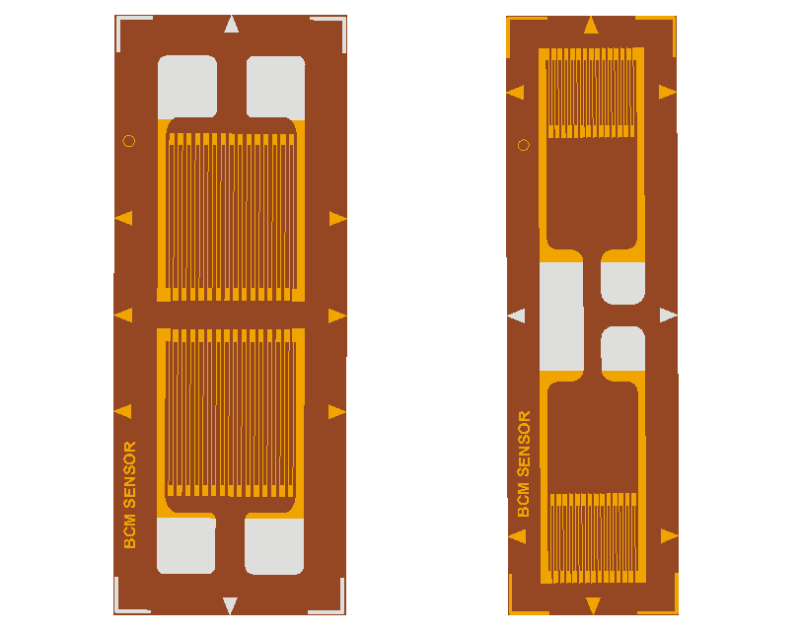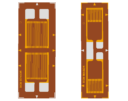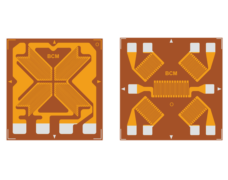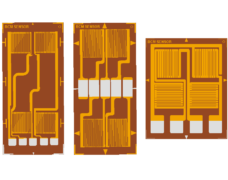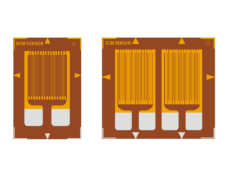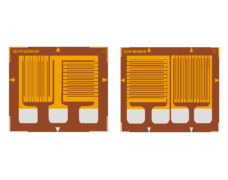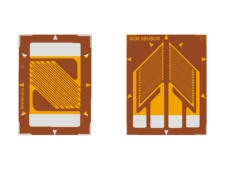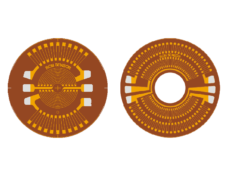Half-Bridge Strain Gauges
- Description
- Key Specifications
- Send Inquiry
- Documentation
Product Description
BCM SENSOR half-bridge strain gauges are specially developed for manufacturing precision force transducers which employ bending beam working principle. They are suitable for applications where the beam length is limited. For the purpose of this specific application, the half-bridge strain gauges are temperature and creep compensated, and they can be either encapsulated or open-face according to the requirement.
The karma gauges can be manufactured with effective modulus compensation (EMC). The EMC gauges are mostly for manufacturing low-cost force transducers, because with the EMC gauges the manufacturers can eliminate the use of compensation resistors and achieve the sensitivity compensation.
For creep compensation, there are 18 creep codes: “N10, N9, N8, …, O, …, P5, P6, P7″. The “N10” is the most negative creep code, while the “P7″ is the most positive one. The “O” stands for a moderate creep code. For a specific strain gauge, please find its available creep code below its dimensions at the “Option *9″ on the following pages. For a customized creep code, consult BCM SENSOR.
For more information on temperature compensation (STC), creep compensation, and EMC of strain gauges, please refer to the corresponding articles respectively on the website of BCM SENSOR.
Additional Information
| Pattern | half-bridge: GB, GB(L), GB(AL), GB(BL) |
|---|---|
| Nominal Resistance | 350Ω, …, 3000Ω |
| Backing Material | modified phenolic resin (F), modified polyimide resin (I), laminated polyetherketone (B), advanced laminated polyimide (A), laminated polyimide (L) |
| Working Temperature Range | -30~+80°C for backing F, -85~+150°C for backing I, -45~+150°C for backing B, -195~+200°C for backing A, -55~+150°C for backing L |
| Tolerance Of Resistance | <±0.1% |
| Gauge Factor | constantan: 2.1±0.1, karma: 2.03±0.17 |
| Gauge Factor Dispersion | <±1% |
| Maximum Working Strain | ±5000µε |
| Strain Limit | up to ±30000µε |
| Fatigue Life | >10^7 at 1000µε |


